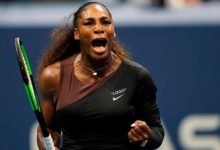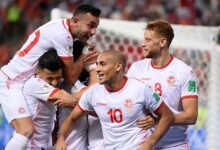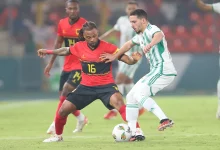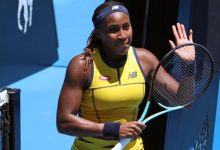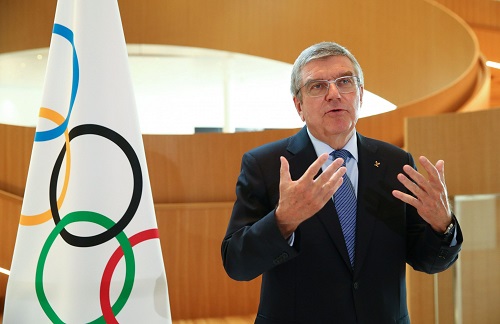
The International Olympic Committee (IOC) is currently exploring the possibility of Russian athletes competing at Paris 2024 amid criticism from some nations that they should not be able to take part under a neutral flag.
The Olympic Games can “set an example” to the world on unity and building bridges, the International Olympic Committee (IOC) says.
The IOC is exploring the possibility of Russian athletes competing in Paris next year, but has faced criticism in some quarters for examining ways that athletes from Russia and Belarus could participate in the Games as neutrals amid the ongoing invasion in Ukraine.
A group of more than 30 nations, including the United Kingdom, issued a joint statement on Monday calling for a ban on those athletes to continue.
In a statement issued to mark the one-year anniversary of the invasion being launched by Russia, the IOC said it had shown “unwavering solidarity” to the people and athletes of Ukraine, but insisted its mission was to promote peace through sport, citing how athletes from warring nations, like North and South Korea, Israel and Palestine and Armenia and Azerbaijan had competed in the same Games in the past.
“During the Olympic Games, athletes from 206 different National Olympic Committees live together in peace in the Olympic Village,” the statement read.
“Peace-building efforts need dialogue. A competition with athletes who respect the Olympic Charter can serve as a catalyst for dialogue, which is always a first step to achieving peace.
“The Olympic Games cannot prevent wars and conflicts; nor, can they address all the political and social challenges in our world. This is the realm of politics.
“But the Olympic Games can set an example for a world, where everyone respects the same rules and one another.
“They can inspire us to solve problems by building bridges, leading to better understanding among people. They can open the door to dialogue and peace-building in ways that exclusion and division do not.”
Government representatives from more than 30 nations have called on the IOC to continue to exclude athletes from Russia and Belarus.
The IOC did issue a recommendation to international sports federations in the days immediately after the start of the invasion that they should exclude those athletes from their competitions, but IOC president, Thomas Bach, has since said that was only a measure intended to “protect” those athletes.
He now argues Russian and Belarusian athletes should not be discriminated against because of the passports they hold.
The group of more than 30 like-minded nations had issued an earlier statement last July saying, based on the non-discrimination principle, it supported those athletes competing as neutrals.
However, their statement on Monday pointed out: “In Russia and Belarus, sport and politics are closely intertwined. We have strong concerns on how feasible it is for Russian and Belarusian Olympic athletes to compete as ‘neutrals’ – under the IOC’s conditions of no identification with their country – when they are directly funded and supported by their states (unlike, for example, professional tennis players).
“The strong links and affiliations between Russian athletes and the Russian military are also of clear concern. Our collective approach throughout has therefore never been one of discrimination simply on the basis of nationality, but these strong concerns need to be dealt with by the IOC.”
The UK’s Culture Secretary, Lucy Frazer, said the nations agreed that Russian president ,Vladimir Putin, “cannot use sport to legitimise his actions on the world stage.” — Sky Sport

